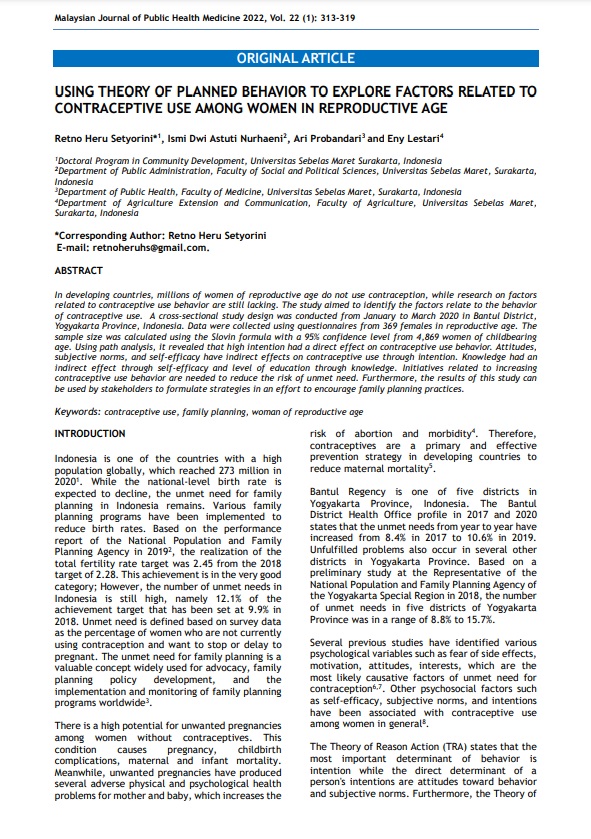ABSTRACT
In developing countries, millions of women of reproductive age do not use contraception, while research on factors
related to contraceptive use behavior are still lacking. The study aimed to identify the factors relate to the behavior
of contraceptive use. A cross-sectional study design was conducted from January to March 2020 in Bantul District,
Yogyakarta Province, Indonesia. Data were collected using questionnaires from 369 females in reproductive age. The
sample size was calculated using the Slovin formula with a 95% confidence level from 4,869 women of childbearing
age. Using path analysis, it revealed that high intention had a direct effect on contraceptive use behavior. Attitudes,
subjective norms, and self-efficacy have indirect effects on contraceptive use through intention. Knowledge had an
indirect effect through self-efficacy and level of education through knowledge. Initiatives related to increasing
contraceptive use behavior are needed to reduce the risk of unmet need. Furthermore, the results of this study can
be used by stakeholders to formulate strategies in an effort to encourage family planning practices.
Keywords: contraceptive use, family planning, woman of reproductive age
USING THEORY OF PLANNED BEHAVIOR TO EXPLORE FACTORS RELATED TO CONTRACEPTIVE USE AMONG WOMEN IN REPRODUCTIVE AGE

